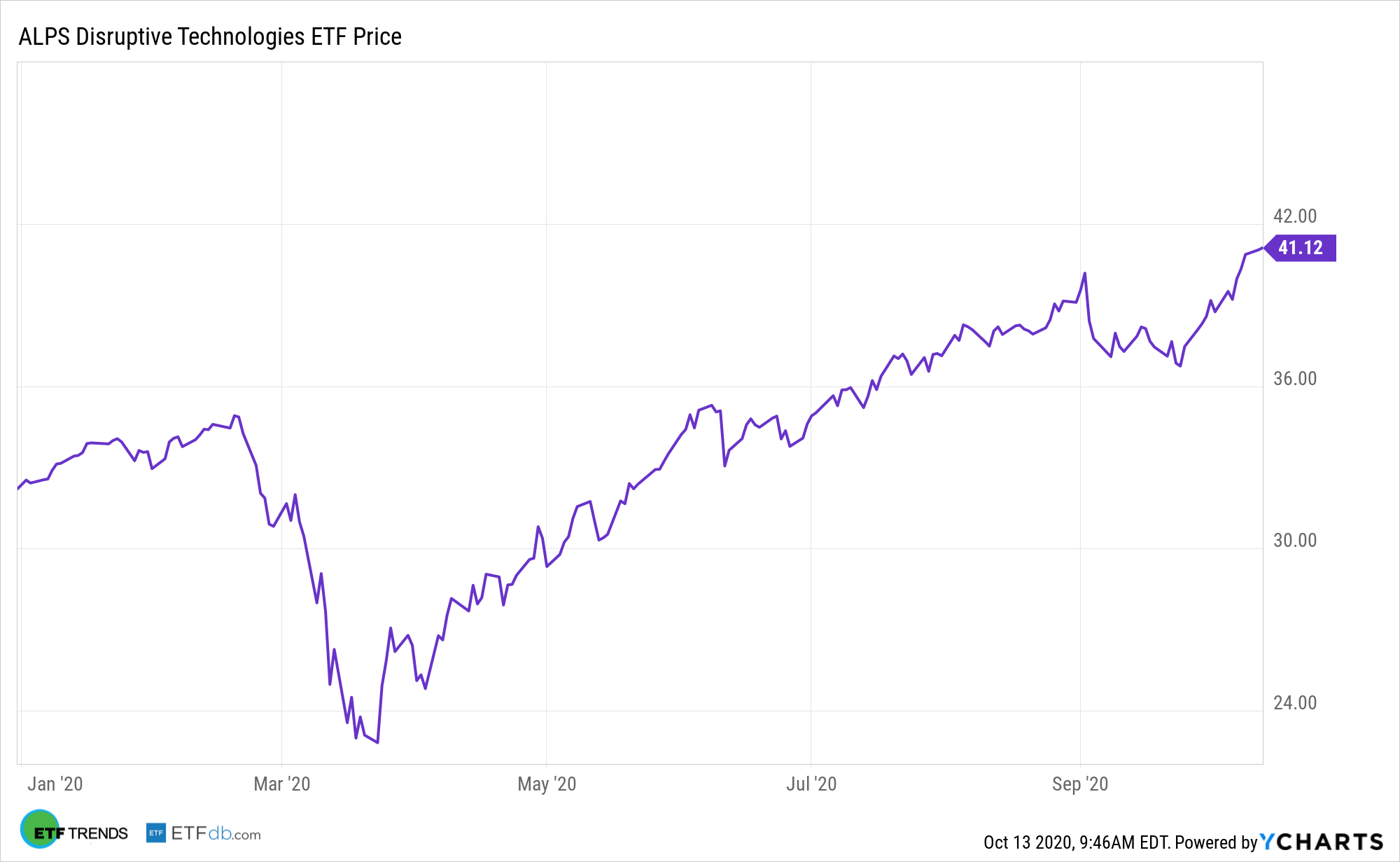The ALPS Disruptive Technologies ETF (CBOE: DTEC) is a multi-theme exchange traded fund, which is an advantageous trait at a time when new technologies are intersecting with multiple sectors and industries.
DTEC tracks the Indxx Disruptive Technologies Index, which identifies companies using disruptive technologies across ten thematic areas, including Healthcare Innovation, Internet of Things, Clean Energy and Smart Grid, Cloud Computing, Data and Analytics, FinTech, Robotics, and Artificial Intelligence, Cybersecurity, 3D Printing, and Mobile Payments
Though it’s not a dedicated electric vehicle ETF, DTEC offers investors leverage to that theme via its clean energy and smart grid exposures. Some of the companies in the fund could be players in the fight to address high grid costs and low revenues faced by EV charging and storage providers.

“These two problems combined, mean that deploying EV infrastructure is seen as a necessary evil, required to enable the wider goal of higher EV uptake,” notes IHS Markit. “This has forced reluctant investments by automotive OEMs to be topped up with public funds in order to enable a network to be developed that will not be used fully for a number of years. However, it doesn’t have to be this way. As the business case for energy storage improves, it can provide a quicker route to profitability for EV infrastructure by helping to address these two problems.”
Big Runway for DTEC
Due to the increased concerns over environmental issues, global governments are supporting the development of electric vehicles worldwide. Consequently, the high voltage battery market will continue to enjoy increased interest and investments as electric vehicles is expected to drive the growth.
While charging rates remain low by virtue of the fact electric vehicles represent a small percentage of global fleets, there’s still a case for energy storage, which could benefit DTEC over the long haul.
“Meanwhile, the case for energy storage has grown substantially in recent years with investment driven by profitable use cases being established across the globe,” notes Markit. “Battery energy storage projects are accessing revenue streams by bidding into existing frequency response markets, providing other ancillary services or increasingly trading wholesale energy as price volatility increases. Commonly quoted returns for energy storage projects are as high as 12-15% in the United Kingdom, United States and Australia, surpassing those of charge point developments. This means there is an emerging opportunity for charge point developers to incorporate energy storage alongside EV chargers to provide additional revenues by providing grid services prior to EV adoption and demand for EV charging increasing – thereby de-risking the overall investment case.”
Other technology funds to consider include the Technology Select Sector SPDR ETF (NYSEArca: XLK) and the Fidelity MSCI Information Technology Index ETF (FTEC).
For more on cornerstone strategies, visit our ETF Building Blocks Channel.
The opinions and forecasts expressed herein are solely those of Tom Lydon, and may not actually come to pass. Information on this site should not be used or construed as an offer to sell, a solicitation of an offer to buy, or a recommendation for any product.








